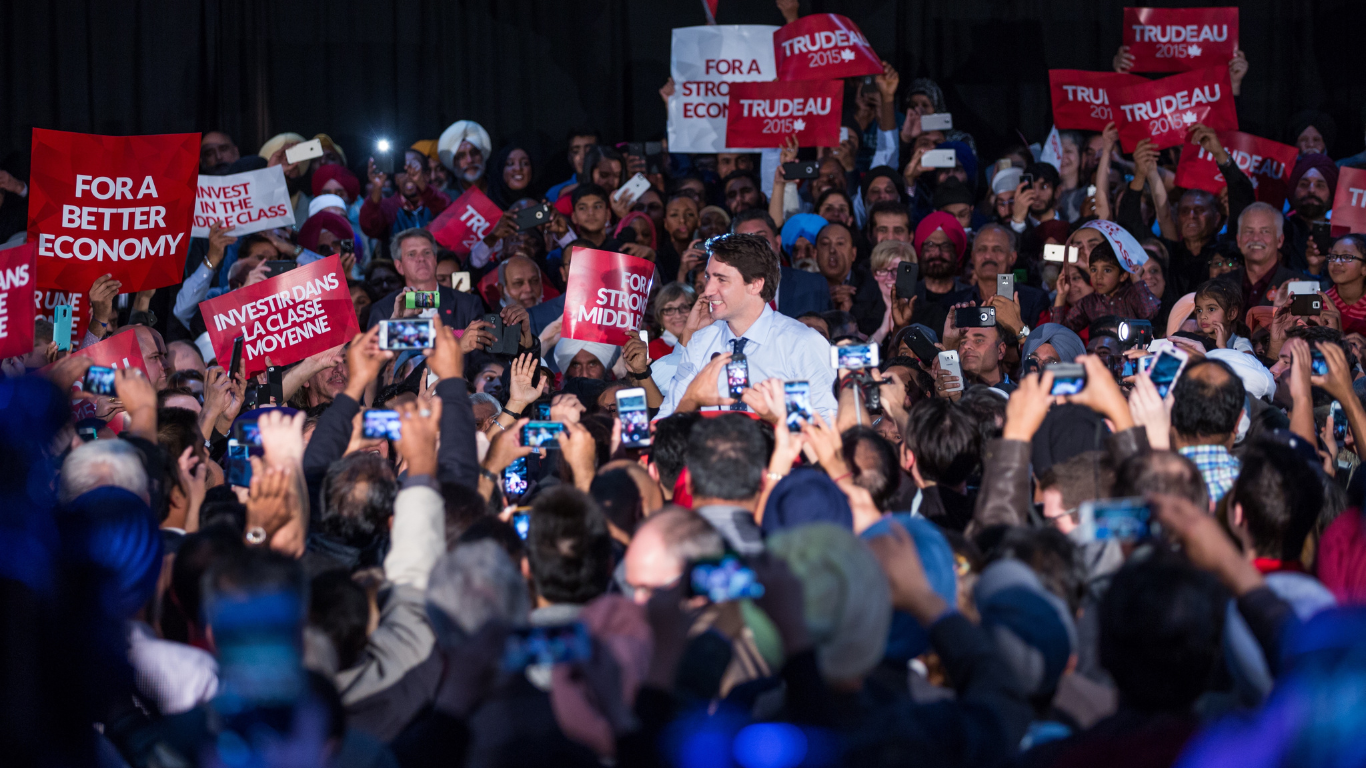January 6, 2025—Canadian Prime Minister Justin Trudeau has announced his resignation, bringing an end to nearly a decade in office. Speaking from Ottawa, Trudeau cited internal challenges within the Liberal Party and waning public trust as reasons for his decision. He assured Canadians he will stay on until the party elects a new leader, ensuring a smooth transition of power.
This decision follows mounting political struggles, including declining poll numbers and growing pressure from the opposition. With Pierre Poilievre’s Conservative Party gaining traction, Trudeau’s departure marks a critical moment for the Liberal Party. To accommodate the leadership race, Parliament’s return has been delayed from January 27 to March 24.
Also Read HMPV Symptoms: https://theinfoplatform.com/hmpv-china-another-viral-wave/
Highlights of a Decade in Leadership
Trudeau’s time as prime minister brought both significant achievements and controversies. Under his leadership, Canada made strides in areas like climate action, women’s rights, and LGBTQ+ inclusion. Key accomplishments included the legalization of recreational cannabis, implementing a national carbon pricing system, and advancing diversity and equality initiatives.
However, his tenure was not without challenges. Economic struggles, rising inflation, and political controversies eroded public confidence in recent years. The departure of Finance Minister Chrystia Freeland, who criticized Trudeau’s leadership style, dealt a major blow to his administration and further deepened divisions within the party.
Trudeau’s Farewell Message
In his resignation speech, Trudeau expressed optimism about the future of the Liberal Party. “Leadership means knowing when it’s time to pass the torch,” he said. “I believe fresh ideas and new energy are needed to address the challenges ahead.” He emphasized the importance of unity and a renewed vision to guide Canada forward.
International Tributes and Reactions
Global leaders reacted to the news with praise for Trudeau’s contributions on the world stage. Australian Prime Minister Anthony Albanese highlighted Trudeau’s commitment to fostering international partnerships and tackling global crises like climate change. Trudeau’s tenure also saw Canada strengthen its presence in multilateral forums and champion progressive values.
Diplomatic Strains with India
Trudeau’s leadership faced significant challenges in foreign relations, particularly with India. In 2023, he accused the Indian government of involvement in the assassination of Hardeep Singh Nijjar, a pro-Khalistani figure, on Canadian soil. India denied the allegations, leading to a diplomatic standoff. Both countries expelled diplomats, and bilateral ties hit a historic low.
Critics accused Trudeau of mishandling the situation and failing to address pro-Khalistani activities in Canada, which New Delhi saw as a security threat. Incidents like attacks on Hindu temples further strained relations and fueled domestic criticism of Trudeau’s foreign policy.
A Party in Transition
Trudeau’s resignation leaves the Liberal Party at a crossroads. The search for a new leader is now underway, with figures like Deputy Prime Minister Dominic LeBlanc and former Environment Minister Steven Guilbeault seen as potential contenders. The party faces the daunting task of rebuilding unity, restoring public trust, and presenting a compelling vision ahead of the next federal election.
Analysts say the leadership race will be critical for the party’s future. With the Conservatives gaining momentum, the Liberals must act swiftly to address internal divisions and connect with voters.
Reflecting on Trudeau’s Legacy
Justin Trudeau’s resignation marks the end of an era in Canadian politics. The son of former Prime Minister Pierre Elliott Trudeau, he entered office in 2015 with promises of inclusivity and progressive change. While he delivered on many fronts, his later years were overshadowed by economic challenges, internal conflicts, and controversial foreign policy decisions.
Trudeau’s legacy includes landmark policies on climate action, diversity, and social reform. However, his handling of issues like inflation and international relations drew criticism, leaving a mixed record as he steps aside.
Looking to the Future
As the Liberal Party charts its path forward, the focus will be on selecting a leader who can unite the party and address Canada’s pressing challenges. Trudeau’s resignation opens the door for new leadership and a chance to redefine the party’s vision.
For Canadians, this moment offers an opportunity to reflect on the country’s direction and the leadership needed for the years ahead. While Trudeau’s departure closes a significant chapter in Canada’s political history, it also signals the start of a new era with fresh possibilities.
